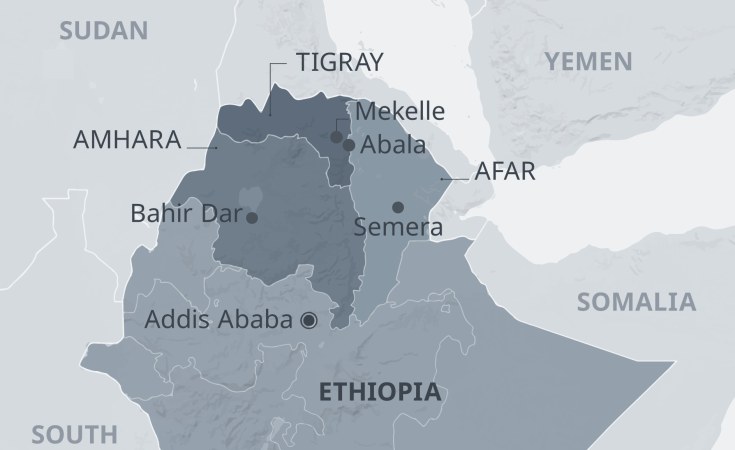Addis Abeba — The Peace negotiating teams of the federal government and the Tigray Region have met in the presence of Prime Minister Abiy Ahmed (PhD) for the first time and discussed the progress of the implementation of the peace agreement signed between the two in November last year.
PM Abiy Ahmed along with other higher officials including Deputy Prime Minister Demeke Mekonnen met face to face with Tigrayan delegation that includes among others Getachew Reda, Lt. Gen.Tsadikan Gebretinsae and General Tadesse Werede at Halala Kela, Dawuro zone, in Southern Nations, Nationalities and People's regional state (SNNP), for the first time since the disharmony between the federal government of and the regional authorities that led to the bloody war in Northern Ethiopia.
According to the official dispatch on the meeting, the two sides discussed the progress of the implementation of the peace deal for two days.
The unexpected meeting happened amid growing concerns about delayed and inadequate basic services restoration in the Tigray region, including banking, road transport and telecommunications. Although some progresses have been seen in the resumption of air travel, opening up of banking services and restoration of telecommunication in the Tigray region, which has been under a "de facto blockade" for two years, the progress has been slow, and the resumed services remain inadequate as opposed to the massive needs.
Even in the area of humanitarian aid, where a significant progress has been achieved since the peace deal was struck, the UN said on 02 February that "some pockets remained that have not yet been accessed" in the delivery of aid, which stands at "more than 127,000 tons of food... reaching more than 3.8 million people."
Redwan Hussein, National Security Advisor to the PM told the state broadcaster since their meeting Pretoria and then, the two meetings in Nairobi, the two parties have been exerting extra efforts "to show commitment and build trust at all levels and creating transparency in the peace agreement, without necessarily sticking only to the details of the peace agreement".
"The Prime Minister has come with a group of other leaders to see the situation where we have reached, and this is similar to what we did last time when we went to Mekelle, which boosts confidence in both sides," he added.
According to Redwan, the two parties have taken into account the situation in Tigray, and Ethiopia at the center of their responsibility and to jointly shoulder the price the war has costed the country.
Getachew Reda from the Tigray delegation also told the state broadcaster that the two teams have discussed improvements in restoring basic services since the peace deal and agreed to work on the remaining issues.
He said, "the people of Tigray have been in great trouble for the past two and a half years. It has been without basic services and humanitarian aid. Services like telephone, air transport etc have only been restored recently yet there are serious shortcomings to this services. Banks have opened but due to serious shortage of cash they haven't been giving services, so we've discussed on ways of improving all these".
He said that they had discussions on the ways in which other services are strengthened and to enable the people of Tigray return to their normal lives after all the sufferings they endured.
"There is ongoing transition in the Tigray Region that aims to resolve political issues with regard to the agreement, and that takes into account the political need of the Tigray people, and in a way that particularly address and resolve once and for all the issues that have led to the war and in a way that meets the aspirations of the Tigrayan people," Getachew said.
On 02 February the US said over the past three months, since the signing of the agreement "important progress" by the parties in implementing key aspects of the agreement have been seen "including the steady and growing delivery of humanitarian aid, initial steps in discussions about a transitional justice process, the ongoing restoration of services; electricity, telecommunications, and banking; significant turnover of heavy weapons, and, in the past couple weeks, a pullback of Eritrean forces from the Tigray region". AS


